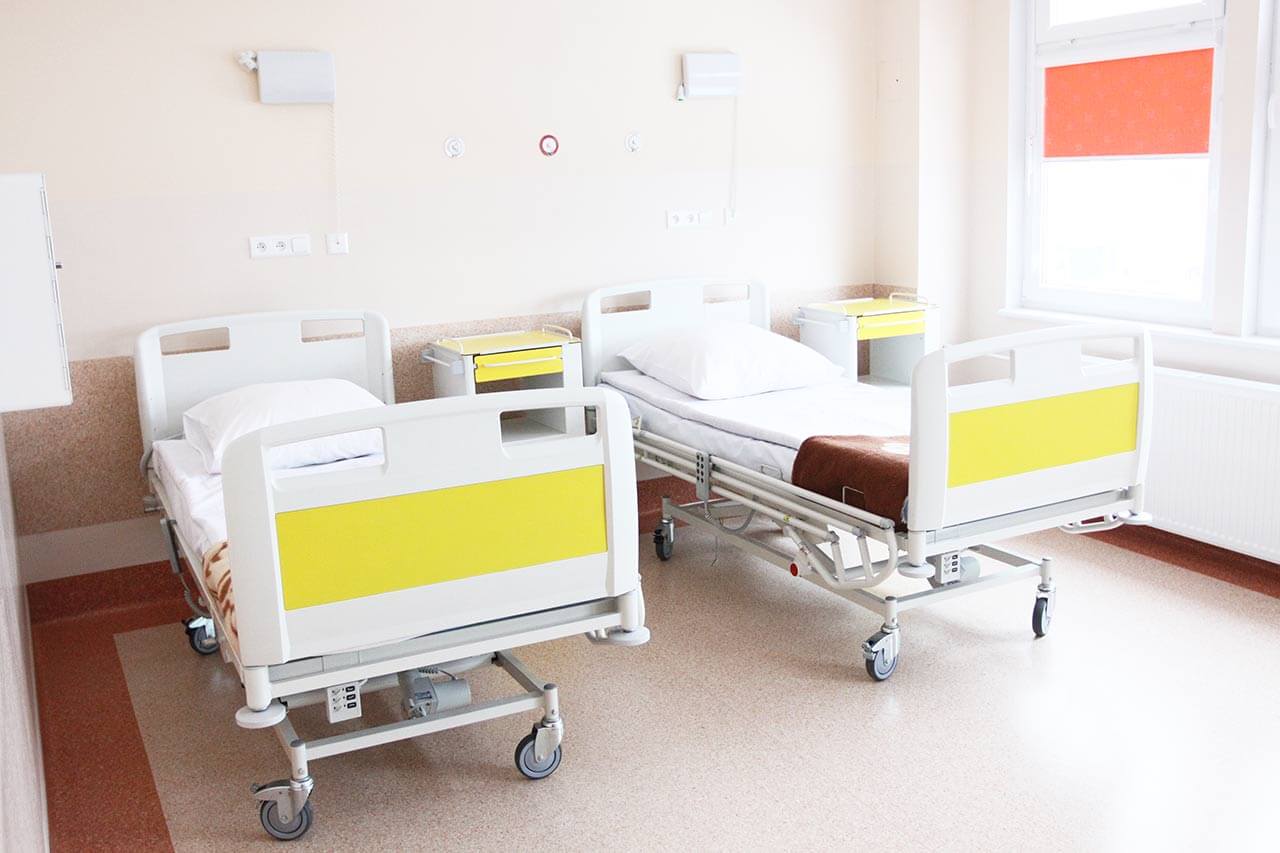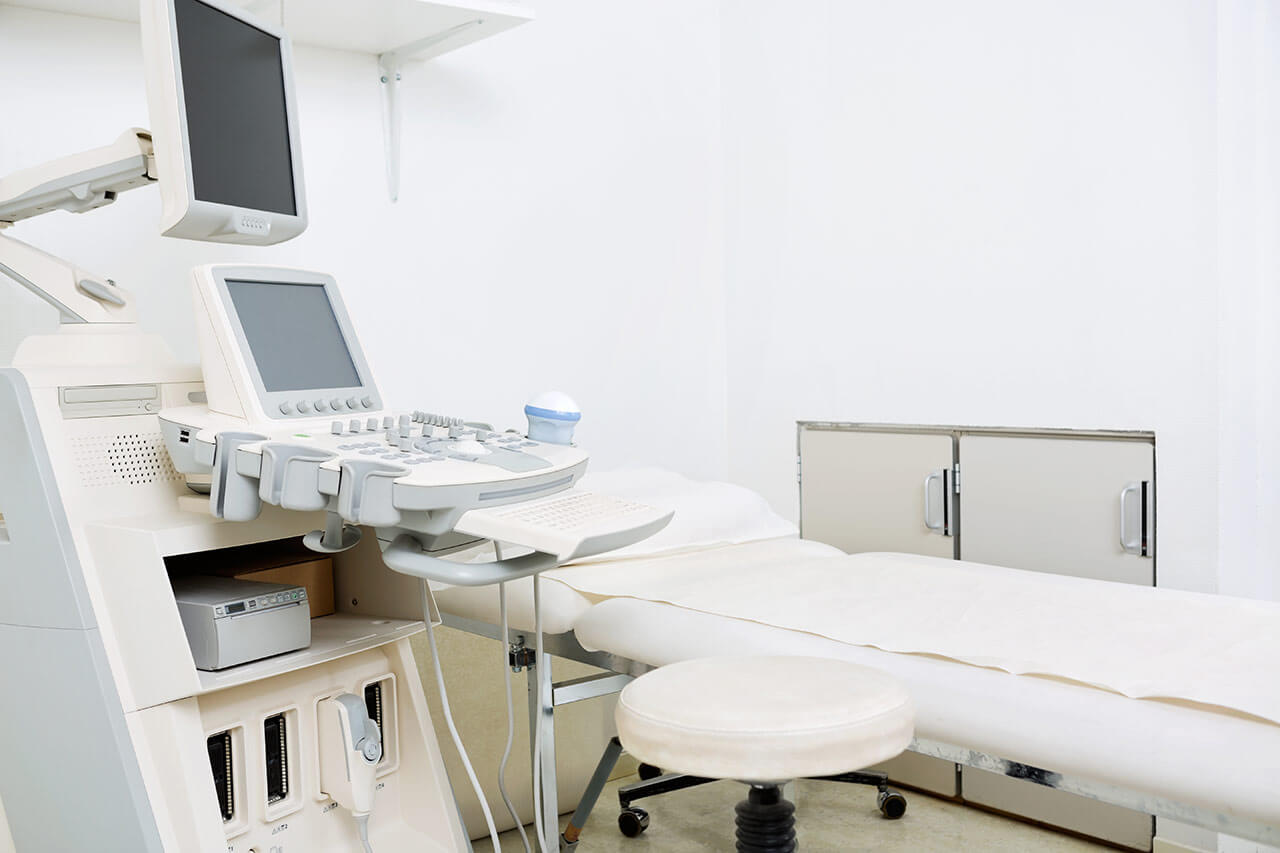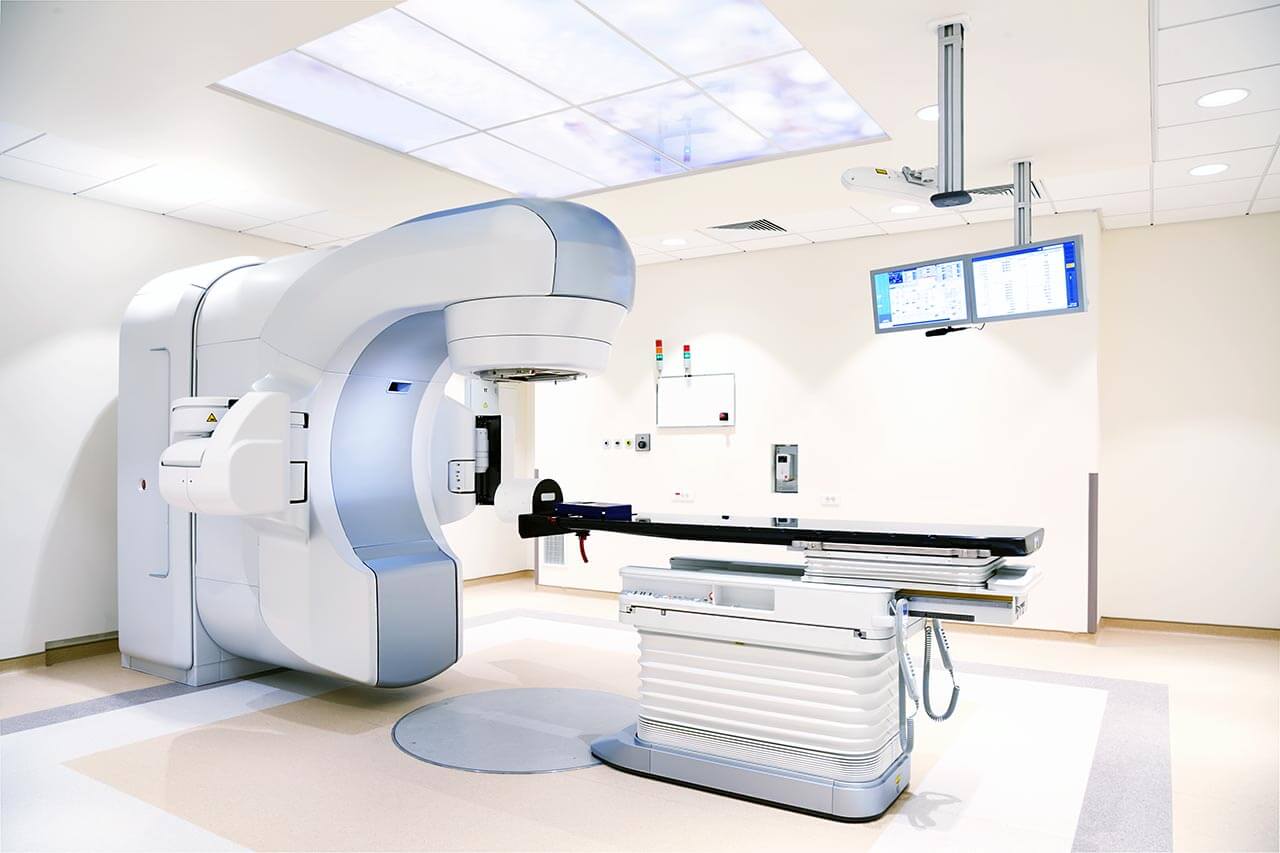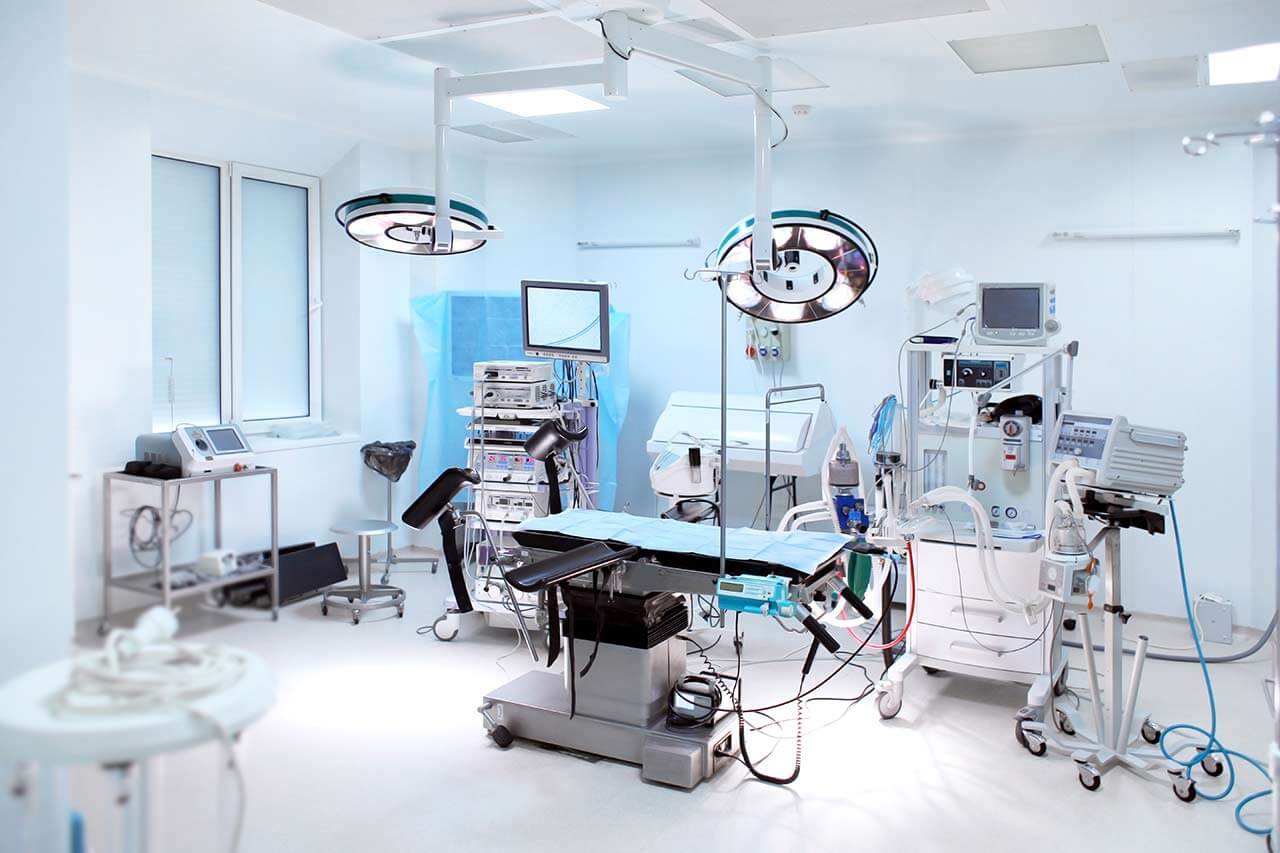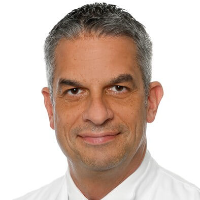
The program includes:
- Initial presentation in the hospital
- Clinical history taking
- Physical examination
- Laboratory tests:
- complete blood count
- biochemical analysis of blood
- TSH, free T3, free T4
- indicators of inflammation
- coagulation tests
- Renal scintigraphy
- Ga-68 DOTATATE PET/CT (if indicated)
- Lutetium-177-DOTATATE treatment
- Full body scintigraphy after 24 hours
- Full body scintigraphy after 48 hours
- Symptomatic treatment
- Cost of essential medicines
- Nursing services
- Stay in the hospital with full board
- Accommodation in 2-bedded room
- Elaboration of further recommendations
How program is carried out
During the first visit, the doctor will carry out a general physical examination and go through the results of previous laboratory and instrumental tests. After that, you will undergo the necessary additional tests such as the assessment of liver and kidney function, scintigraphy of the skeleton and salivary glands, somatostatin receptor imaging with Ga-68 DOTATATE PET/CT. This will allow the doctor to assess how effective the radionuclide therapy with Lutetium-177-DOTATATE will be and how well you will tolerate it. Also, the doctor will calculate your individual dosage of the radionuclide.
Radionuclide therapy with Lutetium-177-DOTATATE is carried out via intravenous administration of a solution with the radioactive isotope Lutetium-177-DOTATATE. The solution is injected through a catheter. This is a short procedure, as the infusion usually takes no more than 20 minutes.
During the procedure, you will need to apply cooling bags to the salivary glands, as Lutetium-177-DOTATATE partially accumulates in the salivary glands, affecting their function and causing dry mouth. You will also receive intravenous saline solutions and amino acid solutions to protect your kidneys.
After the infusion of Lutetium-177-DOTATATE, you will stay in a specially equipped (radiation-shielded) ward for 48 hours. The drug is quickly excreted by the kidneys, and after 48 hours you will no longer be dangerous to others. During these 48 hours, you can read, use a mobile phone, tablet or computer – all these devices will not be a source of radiation in the future.
Follow-up examinations include whole-body scintigraphy or computed tomography in 24 hours and 48 hours after the procedure. Based on the results of the examination, the doctor will determine whether one procedure is enough for you, or whether you will need to visit the hospital again. As a rule, 1-2 procedures are required for achieving a stable positive result. Procedures are carried out with an interval of 8 weeks.
Service
You may also book:
 BookingHealth Price from:
BookingHealth Price from:
About the department
The Department of Nuclear Medicine at the University Hospital Duesseldorf offers the full range of diagnostics and treatment with radioactive substances. It conducts many scintigraphic examinations, ranging from the diagnostics of the thyroid gland and skeleton to amino acid metabolism studies in brain tumors and metabolic studies in other malignant tumors. The department has at its disposal a specialized outpatient clinic for the diagnostics and treatment of thyroid diseases. The department is headed by Prof. Dr. med. Frederik Giesel.
Along with several traditional gamma cameras, the department has two SPECT cameras, each of which is equipped with several detectors. The diagnostic capabilities are also complemented by the very latest techniques, for example, positron emission tomography (PET). This method is one of the most informative, because using it the doctor can see a complete picture of glucose metabolism in cancer, cardiac, neurological and psychiatric diseases.
The service range of the department includes:
- Diagnostics and treatment of thyroid diseases
- Radioiodine therapy for treating tumors, in particular, thyroid tumors
- Diagnostics of coronary heart diseases and complications after myocardial infarction
- Scintigraphy
- Thyroid and parathyroid scintigraphy
- Scintigraphy to detect oncopathology
- Whole-body scintigraphy
- Radioactive gallium scintigraphy
- Somatostatin receptor scintigraphy with octreotide
- MIBG scintigraphy
- Scintigraphy using cancer embryonic antigen (CEA)
- Scintigraphy in heart diseases
- Myocardial scintigraphy
- Radionuclide ventriculography
- Brain scintigraphy
- IBZM brain scintigraphy
- Brain perfusion scintigraphy
- Cerebrospinal fluid scintigraphy
- Dopamine transporter scintigraphy (FP-CIT)
- Kidney scintigraphy
- Kidney tubular scintigraphy
- Glomerular kidney scintigraphy
- Static kidney scintigraphy
- Scintigraphy of the blood system
- Determination of the bleeding source
- Schilling test
- Scintigraphy with labeled red blood cells
- Leukocyte scintigraphy
- Scintigraphy of the gastrointestinal tract
- Esophageal scintigraphy
- Stomach scintigraphy
- Salivary gland scintigraphy
- Lymphatic scintigraphy
- Lung scintigraphy
- Liver scintigraphy
- Spleen scintigraphy
- Positron emission tomography
- Other diagnostic and treatment methods
Curriculum vitae
Prof. Dr. med. Frederik Giesel heads the Department of Nuclear Medicine at the University Hospital Duesseldorf. He also holds a position as a Visiting Professor at Osaka University in Japan. He has also worked as a Visiting Professor at Stanford University in the USA and Yonsei University in South Korea.
Prof. Giesel graduated from the Universities of Mainz and Heidelberg in Germany, then worked for some time at the National Institutes of Health Bethesda, USA. Dr. med. Frederik Giesel completed his residency at the University Hospital Heidelberg and the German Cancer Research Center (DKFZ). At the same time, he trained at the National Institutes of Health, Bethesda, and Stanford University, USA. During his residency, he also underwent training and earned a Master of Business Administration degree from the Frankfurt School of Finance and Management. After board certification and habilitation, Prof. Giesel received an additional specialization in nuclear medicine at the University Hospital Heidelberg.
Prof. Frederik Giesel founded the first integrated seminar series "Virtual Anatomy and Pathophysiology" at Heidelberg University. He has published more than 230 scientific papers in print and online publications. In close collaboration with Prof. Haberkorn's Research Group, the specialist developed the FAP ligand at the University Hospital Heidelberg.
Clinical Interest
- PSMA PET/CT for prostate cancer diagnosis.
- Imaging diagnostics of oncologic diseases.
Research Interests
- Translational molecular imaging of malignant tumors.
- PSMA PET.
- PET with FAP (fibroblast activation protein) ligand.
- Development of new cancer targets.
Photo of the doctor: (c) Universitätsklinikum Düsseldorf
About hospital
According to the authoritative Focus magazine, the University Hospital Duesseldorf ranks among the top Germany hospitals!
The hospital is an excellent example of a combination of high-quality health care, research and teaching activities. With more than 50,000 inpatients and about 300,000 outpatients every year, the hospital is one of the largest and most prestigious medical institutions in Germany and Europe.
Modern, safe and sparing diagnostic and therapeutic methods guarantee effective treatment of various diseases and their consequences. All therapeutic processes are based on an interdisciplinary approach, which provides comprehensive medical care and optimal treatment result. Obviously, one of the key roles in the successful clinical practice of the medical institution is played by a highly qualified medical personnel, which consists of the best world-class doctors. The hospital also has a special advantage due to the structured equipment with the innovative medical technologies.
The hospital presents almost all fields of modern medicine. Special attention should be given to such focuses as oncology and hematology, stem cell transplantation, neurosurgery and neurology, urology, obstetrics and gynecology, hepatology, kidney transplantation, vascular surgery, cardiac surgery, pediatric surgery, pediatric oncology, etc.
In addition to the outstanding quality of medical services, the hospital guarantees each patient an attentive care, friendly atmosphere, as well as sensitive and respectful attitude.
Photo: (с) depositphotos
Accommodation in hospital
Patients rooms
The patients of the University Hospital Duesseldorf live in comfortable single, double and triple rooms. The patient rooms are made in bright colors and modern design. The room furnishing includes an automatically adjustable bed, a bedside table, a wardrobe, a telephone, a multimedia device (TV, radio, Internet access), a table and chairs for receiving visitors. To use the phone and multimedia device, the patient should have a special chip card, which can be purchased at the reception. In the pediatric departments multimedia device can be used for free.
Meals and Menus
The patients of the hospital are offered a varied, tasty and healthy diet. Every day there are three menus to choose from for adults and four menus to choose from for children, while it is possible to develop an individual menu. When pre-ordering, the international patients may have dishes of various cuisines of the world, for example, Asian and African cuisine. If a patient needs a diet in accordance with the clinical indications, he will be provided with a special diet menu, including drinks.
Every day, the nurses inform the kitchen workers about the patient wishes using an electronic data processing system. Immediately before serving food, there are printed special cards, which indicate for which patient this or that dish is intended.
Also, the hospital houses a cafeteria with a rich selection of delicious, healthy dishes, snacks and drinks.
Further details
Standard rooms include:
Religion
Christian priests are available for the patients at any time. Representatives of other religions may be requested at any time.
Accompanying person
Your companion may stay with you in your room or at a hotel of your choice during the fixed program.
Hotel
You may stay at the hotel during the outpatient program. Our employees will support you for selecting the best option.
The hospital offers a full range of laboratory tests (general, hormonal, tests for infections, antibodies, tumor markers, etc.), genetic tests, various modifications of ultrasound scans, CT scans, MRI and PET / CT, angiography, myelography, biopsy and other examinations. Treatment with medications, endoscopic and robotic operations, stereotaxic interventions is carried out here, modern types of radiation therapy are also used. The hospital offers patients all the necessary therapeutic techniques.
- Dermatosurgery
- Skull base surgery
- Gastric bypass and bandage
- Removal of lung metastases
- Interventions on the spine
These are skin cancer (including melanoma), head and neck tumors, pathological changes in the chest (including funnel chest), obesity, liver diseases, HIV and other infectious diseases, varicose veins, aortic aneurysm, carotid artery stenosis, joint diseases and other pathologies.
- Dermatology
- Oncology
- Otorhinolaryngology
- Endocrinology and diabetology
- Orthopedics and traumatology
Over 800 highly qualified physicians work at the hospital.
